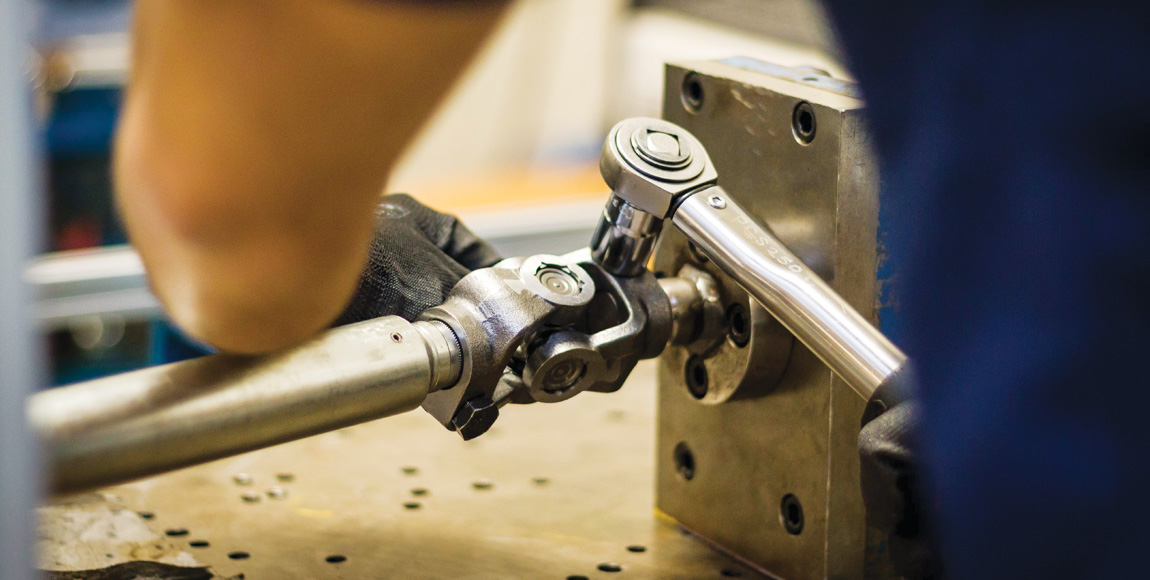A question of replacement parts

Sourcing alternative replacement parts for trucks is just one procurement example that can have negative implications in terms of a vehicle’s whole-life cost, warns an engineering expert
When replacing truck parts, it’s important to use original items rather than alternatives that merely look similar to the real McCoy. As the old saying goes: identical twins share 100 percent of their genes – fraternal twins share only 50 percent. For replacement truck parts, the difference matters.
That’s the warning from Roger Brereton, a United Kingdom-based expert at Pailton Engineering, who has a few theories relating to the long-term cost advantages of opting for original equipment manufacturer (OEM) parts.
He says a critical aspect of a vehicle’s whole-life cost relates to maintenance costs accumulated during its service life, and sourcing “kind of similar” replacement components for trucks is just one procurement example that can have negative implications.
“You cannot be sure that alternative products are made to the same standards as those supplied by the OEM, and so could result in costly, recurring repairs,” he warns, explaining that OEM products are those sourced directly from the manufacturer of the vehicle’s original parts and are identical to the items that need replacing, made with the same considerations and quality assurance.
“Contrastingly, alternative parts manufactured by a third-party company may be intended to serve a similar function to the parts being replaced, but they are not an exact match. It is, therefore, much harder to ensure the same levels of functionality and quality, bringing with it a higher risk of failure. In a worst-case scenario, one unfortunate accident could result in an irreversibly damaged reputation for the operator, all because an OEM part wasn’t sourced.”
According to Brereton, one reason for the disparity in performance is that the quality of raw materials used in manufacturing alternative parts varies greatly, compared with a premium OEM-quality part that is made from specified standard raw materials and tested for consistency.
“Choosing an OEM part may boost a customer’s confidence in the safety and reliability of the part – but confidence doesn’t protect profit margins. The measurable reward comes from reduced comebacks and downtime. If vehicles are kept on the road, profits are maximised – yet commercial fleet managers are still falling for false economy by choosing cheap options.
“Generally speaking, alternative parts are usually much less expensive than OEM parts, which, at first glance, may seem like a budget-friendly option, but, as the saying goes, buying cheap means buying twice. Alternative parts lack the OEM’s guarantee of quality, fit and function and may mean additional purchases in the short-term.”
Brereton says that, ultimately, a vehicle could go through one or more alternative replacements in the span of an OEM part’s life, taking trucks off the road for repair with recurring labour costs associated with each episode. “Suddenly,” he says, “the aforementioned whole-life cost rapidly increases.”
He adds that a contentious issue surrounding alternative parts is an often-misleading strapline that claims the component matches the quality of OEM equivalents. “There are no defined regulations on what is actually meant by suppliers who label products with this phrase,” he says.
“It is often easier to explain what this strapline doesn’t mean. A ‘matched quality’ part certainly doesn’t mean the part is an OEM part, or is OEM approved. Most will not have been tested to the vehicle manufacturer’s quality standards, but simply declared fit for purpose by the supplier.”
As a parting shot, Brereton asks fleet managers and buyers to shop in a way that protects the industry in which they work. “It works both ways,” he says. “Buying an OEM product enables access to the manufacturer’s network of support, something which is certainly lacking with regard to alternative parts. Questions are answered by someone who knows the equipment and parts first-hand, rather than by someone with only passable knowledge about the part in question.”
Food for thought, indeed!
WYNTER MURDOCH
Published by
Focus on Transport
focusmagsa



